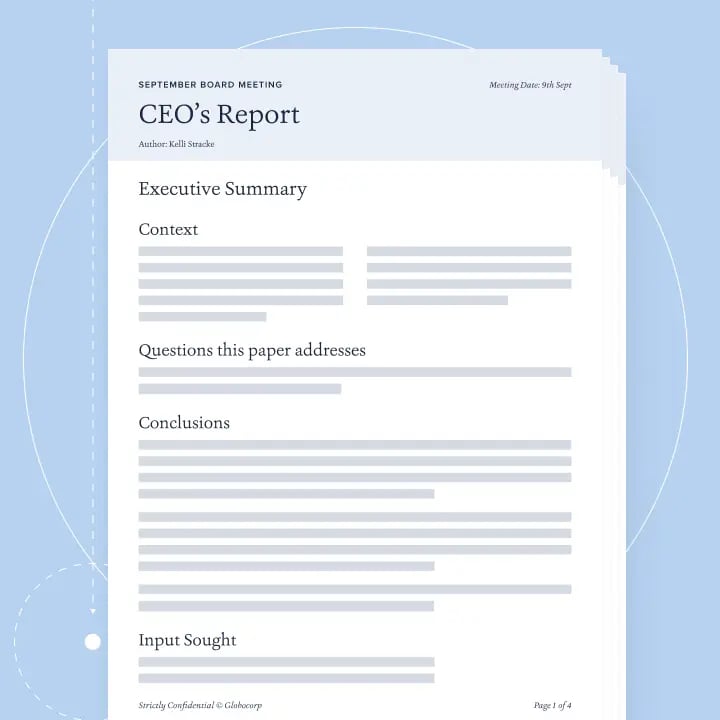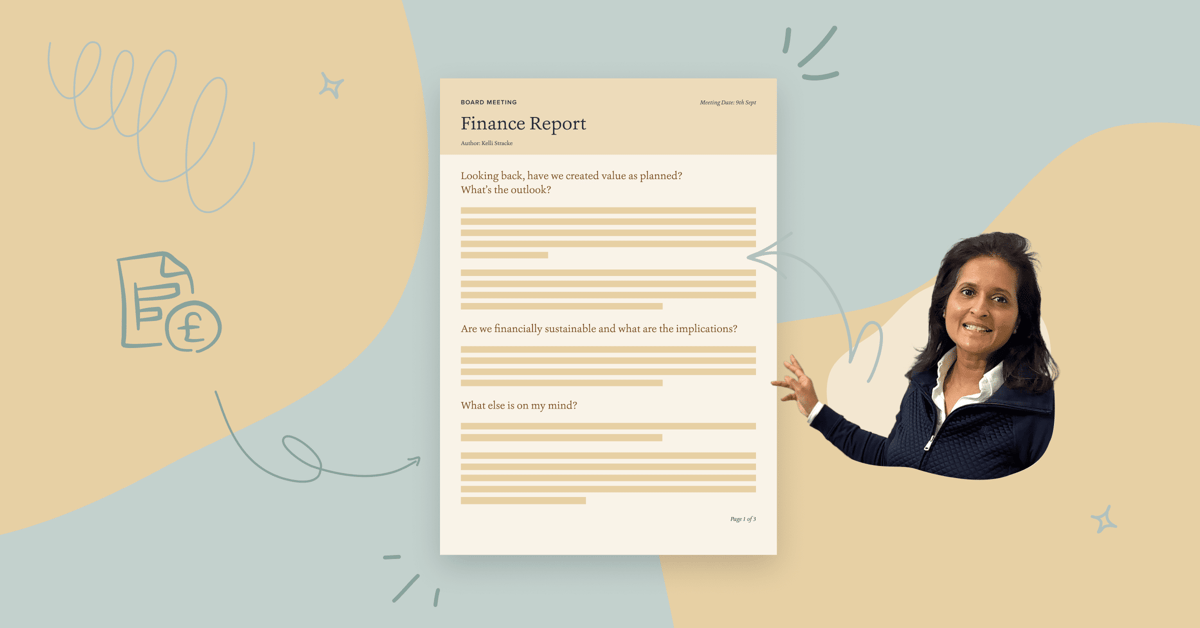The numbers speak for themselves. Or do they? Given a table of numbers, say, an income statement, will we all take away the same key messages? Unlikely. Will we know the implications the finance director has swirling in his or her head? Even more unlikely. And that’s the crux. What does the chief financial officer really think about the numbers? A great finance report is the story of an organisation’s performance, told by numbers, overlaid with the finance director’s judgment; it should never be a series of spreadsheets and charts.
The following is a transcript of the video.
The 3 simple (but powerful) questions your finance report should be answering
Numbers don’t speak for themselves, so instead of leading with the income statement, a cash flow and the balance sheet, use these three questions to unpack financial performance and tell the story behind the numbers. Let’s look at each of them.
1. Have we created financial value as planned?
The first addresses financial value creation. Looking back, have we created value as planned? And then looking ahead, what’s the outlook?
Whether it’s profit, EBITDA, or surplus, unpack where you’re destroying or creating value. Then draw out the materiality of any variance. Is it noise or is it meaningful?
Next, what’s driving that performance? For example, is it due to revenue uplift or overspend on cost? And don’t forget the outlook. This is your expression of confidence in hitting the plan numbers, the head and tailwinds that you anticipate and what you think could be done about them.
2. Are we financially stable and what are the implications?
Question two, are we financially stable and what are the implications? This can be unpacked into two drivers. Have we generated cash as planned? And given your cash outgoings, what does this mean for your future financing needs?
For example, how are you going to fund growth? Through cash flow, raising equity, or by borrowing?
3. As chief financial officer, what else is on my mind?
Question three, what else is on my mind? Here’s where you talk to anything that’s not clearly visible from the numbers. The things that might be keeping you up at night.
And as you do this, look ahead. Most financial reports suffer from being backwards-looking, so I’d encourage you to look forward and express confidence — or otherwise — in the plan. And don’t be afraid to express thoughts and feelings, and your judgement on the cash situation and financing outlook.
Don’t forget, financial reports need well-visualised data
One final point, well-visualised charts and tables can replace hundreds of words. Here are three tips for creating great charts:
- Use comparators so that above and under performance is clear. This can be made clearer with the use of colour to draw the eye to weaker or stronger areas of performance.
- One chart, one message. Your chart needs to convey its message in under ten seconds. If it fails that test, think again.
- Structure your charts to answer similar questions to the ones in your narrative report. This way, the charts are focused on the “What?”, or the results, and the narrative can focus on the “Why?” and “So what?”
Remember: the numbers don’t speak for themselves. What the CFO thinks about them is what matters most.
If you found this useful, check back for other videos in this series and take a look at Lucia, our management reporting platform that helps you write brilliantly clever reports that spur your business to action.
Or see more of this series
How to write a great…

A thinking and writing platform that helps you to write brilliantly clever and beautiful reports that surface breakthrough insights and spur your business to action.
Find out more


